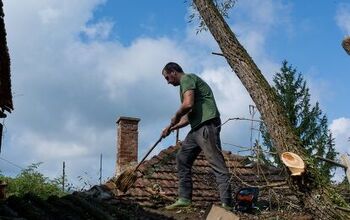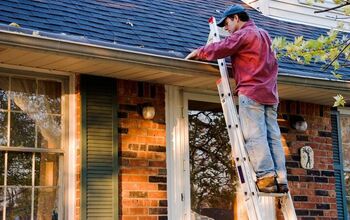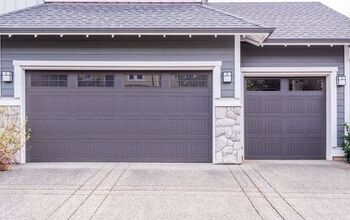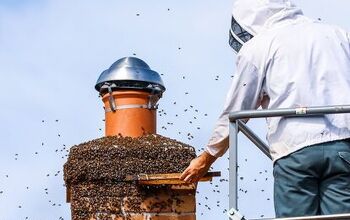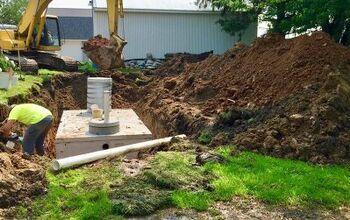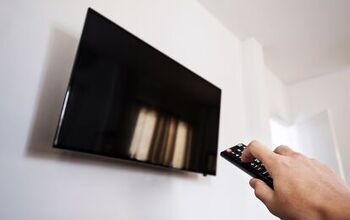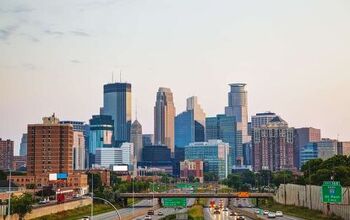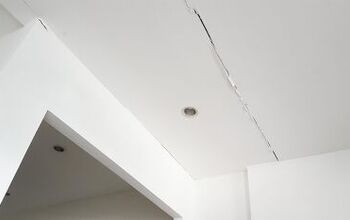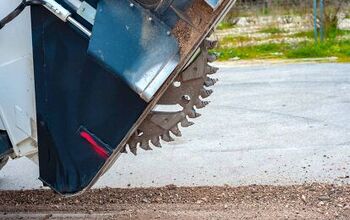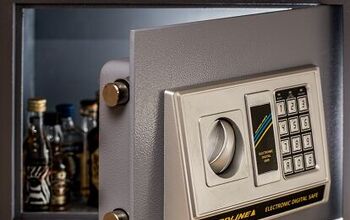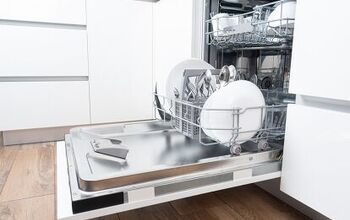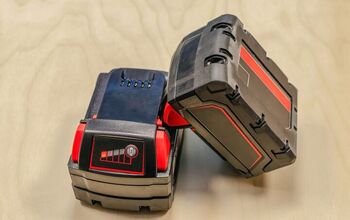Will Homeowners Insurance Cover Chimney Repair?

Part of owning a home that no one tells you about is the hassle of handling structural fails and unfortunate events. This is why homeowners insurance is so important to have, to help you pick up the repair costs. However, one important part of a home that many people forget to consider is the chimney. Are chimney repairs covered by home insurance?
Homeowner’s insurance will cover chimney repair if the damage was due to sleet, snow, ice, a fallen tree, or a fire. They will also cover any damage that the fallen chimney has caused. However, if the structure was built poorly or if you failed to take care of your chimney, they will most likely deny your claim.
Making sure you have a proper working chimney is very important, which is why you need to know whether you’re covered in the event your chimney is damaged. This article will cover all you need to know on the topic!
When Are Chimney Repairs Covered by Home Insurance?
The structure of your home, including your chimney, is protected by a basic home insurance policy against covered dangers. One of the six essential safeguards in a normal policy is dwelling coverage, which covers repairs to your chimney if it is damaged by a covered incident.
Homeowners’ insurance may cover chimneys that collapse due to sleet, ice, or snow, but it may not pay chimney repairs if the chimney was previously damaged before it collapsed.
Will Homeowners Insurance Cover Chimney Fires?
Getting your insurance to pay for chimney repair after a chimney fire is usually not an issue. The insurance company may refuse to cover the damage every now and then, in which case you’ll have to don your argument hat and defend your case. Don’t take no for an answer; your coverage covers chimney fires.
Any part of your home or the structures and valuables covered by your policy is covered in the event that a fire occurs. But what about damage to another person’s property? That is handled in a different section of the policy, but you are almost certainly covered for liability.
A conventional policy would cover lightning strikes and the resulting fire damage. If lightning strikes your chimney, it may lose bricks or topple over. Then, your homeowner’s insurance will cover chimney repairs as well as damage to your home if your chimney collapses.
Fallen Tree Damage
If a tree falls on your chimney and causes damage, your homeowner’s insurance will cover the cost of repairing the damage and removing the tree.
Again, this is a situation that is entirely out of your hand. There is no amount of maintenance that could have prevented this from happening.
When Are Chimney Repairs Not Covered by Home Insurance?
Homeowners’ insurance won’t always cover chimney repairs. If they deem the problem a maintenance issue, they most likely will not cover the costs. Below are a couple of scenarios where you are most likely to be denied coverage.
Neglect
Homeowners’ insurance does not cover any type of maintenance; thus, damage to a chimney that develops over time due to neglect or inappropriate care would not be covered. Fallen bricks and related repairs are also not covered, and most insurers will deny your claim if you try to make one.
Due for improvements
Homeowners’ insurance may cover the cost of repairs if your chimney is leaning and suddenly collapses, but it depends. If the cause of the lean was a covered risk and you can show that you took steps to remedy it, they may cover any property damage as well as chimney restoration costs.
However, chimneys that were needed for maintenance prior to the damage may not be covered, and aggravated damage may not be reimbursed.
Is Hidden Structural Chimney Damage Covered by Home Insurance?
It is debatable whether hidden structural chimney damage would be covered by your insurance. Chimney repairs to fix flaws are not covered if the structural damage is caused by a poorly designed chimney.
On the other hand, if an unfortunate event (such as a fire) happens as a result of the chimney’s faulty construction, the damage is covered. However, it all really comes down to the insurance adjuster that the company sends out to investigate. They typically make or break the case.
Will Homeowners Insurance Cover a Chimney Collapse?
When it comes to chimney collapse, your insurance will most likely cover it; however, they may try to fight it. This could go either way. The argument for not paying would be that the chimney fell due to some structural issue, and if that issue is obvious, the claim may be denied.
They could also argue that it had been a long time coming, and you should have dealt with it, like in the case of the leaning chimney that collapsed through the deck. (Again, they’d be responsible for any damage that resulted, but not for the chimney itself.)
On the other hand, when a chimney falls, it’s a very sudden and unexpected catastrophe. Again, they most likely will pay, but there’s always the chance that they won’t. It’s important for you to always keep that in mind.
How Does The Insurance Company Decide When to Pay for Chimney Damage?
The terms of any insurance policy are in the hands of the insurance companies, but they also have company policies (general ways they want customers treated, etc.) The truth is that most businesses don’t genuinely intend to make your life difficult. The industry is compensated to allow for the gray areas and to be somewhat flexible when the policy’s provisions aren’t clearly defined.
The majority of businesses will gladly pay a valid claim. Of course, they’d prefer if there were no claim, but once you’re there, they’re ready to deal with it while smiling. It’s what they’re good at.
They also don’t want a terrible reputation among the general population. The insurance commissioners are consumer-focused and seek to safeguard the public, which helps them stay on track if they get off track.
What Will Insurance Cover When it Comes to my Chimney?
They’ll pay for whatever was affected as well as the effort required to restore it to its previous state. They are not willing to pay for betterment. More to the point, they will not pay for a superfluous upgrade; in fact, restoring a liner to its original condition would cost more than installing a brand new stainless steel liner.
Occasionally, an adjuster will try to make an issue of the replacement liner. However, once he finds how much it costs to replace the tiles according to code, it’s no issue. (Which may mean pulling down the entire structure and buying matching bricks) He will eventually agree to replace the tiles with a stainless steel liner.
As a result, if the tiles are shattered due to a chimney fire, they will be repaired. They’ll also take care of any structural damage caused by the fire. Perhaps your fireplace’s face caught fire inside the wall as well. And when rescue came, maybe the firefighters tore down the entire wall and left it on the floor; this, too, must be repaired.
Will Home Insurance Cover Pre-Existing Conditions with the Chimney?
Your insurance might be able to help with pre-existing conditions. Let’s say they break open that wall and discover not only that the chimney caught fire but also that there are holes in the smoke chamber that have been there all along. Technically, that is not covered; however, it is highly unlikely that the firm will argue about getting that region fixed. They don’t want you to set fire to the entire house. In a situation like this, they will want the entire structure to be made safer.
But let’s say you’ve always despised the mantle in front of the fireplace and believe this is your chance to replace it. They’re going to put a stop to it. “OK, replacing the old one will be $XXX.xx, and the new one is $YYY.yy.”
The adjuster will most likely say, “We’ll give you $XXX.xx to put toward that half of the job, and you’ll cover the rest.” They aren’t in business to improve your home; rather, they are in business to protect you from loss.
Will Homeowners Insurance Cover the Hat and Crown of a Chimney?
What about the hat and crown? Although the crown and cap are minor items, they are not protected unless they have been damaged by the fire. These are minor issues in contrast to other damages, and they are typically included in chimney repair.
If the damage to your crown or cap was not caused by the “incident,” you can address it with the adjuster, or if you’re lucky, you will have a chimney contractor who takes care of everything. Any UL-listed system, by definition, must have a cap. Technically, a cracked crown cannot be sealed; however, this is rarely an issue.
Let’s say it’s not something minor like a hat. Let’s say the chimney caught fire, but subsequent examinations revealed that the plywood form on which your hearth was poured is still present. That timber isn’t there, but the workmanship is poor. The firm will expect you to correct it, but the company will not be responsible for the costs.
The fact that something looks better after the repair than it did before the damage isn’t enough for the insurance company to refuse to pay. It’s covered if it’s necessary to do [whatever] to restore the chimney’s condition.

Heather is a passionate writer who loves anything DIY. Growing up, she learned everything from home repairs to design, and wants to share her tips with you. When she's not writing, she's usually hiking or searching for her next DIY project.
More by Heather Robbins












